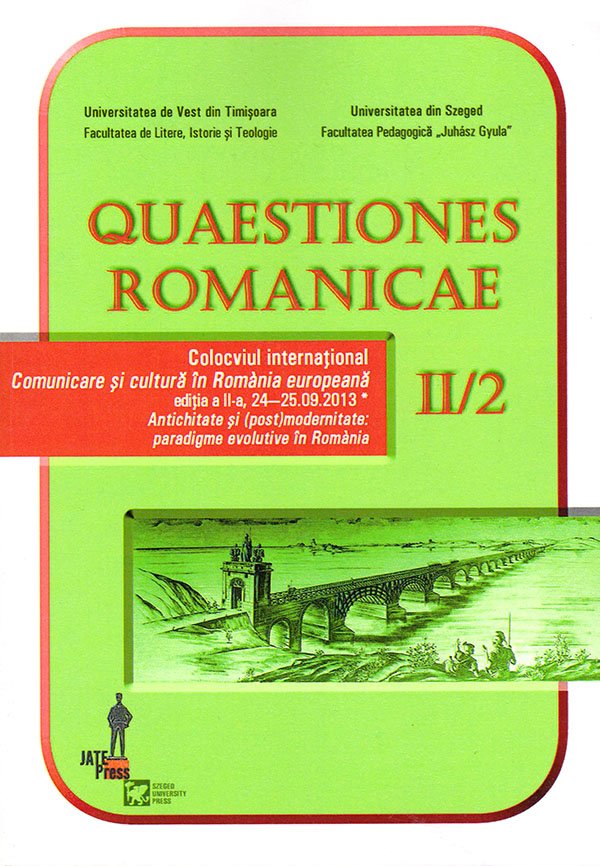„Teatru fără profesor” sau despre începuturile dramaturgice ale lui Eugen Ionescu
Abstract: (“Theater Without a Teacher” or About the Beginnings of E. Ionesco as a Playwright) E. Ionesco’s first playwriting attempt is the play English Without a Teacher, written in Romanian, a play that is close to the radical metatheatrical experiments of Luigy Pirandello, due to its explicit metatheatrical dimension, For the history of the early 20th century’s theatre, Pirandello’s radical metatheatrical message represents an act of theatrical pedagogy that can be analyzed on three related dimensions: an analysis of complex theatrical machinery, a denial of the then popular Boulevard Theatre, and an act of criticism against the cultural and aesthetical practices of the epoch. In effect, Pirandello’s metatheatrical experiments represent explicit and promising manifestations for the renewal of the European theatre; and here one should also notice the implicit criticism against the ideological structures that were populating the cultural imaginary of the time. Ionesco’s early play follows the aesthetical and cultural principles generated by Pirandello’s iconoclast views. The play English Without Teacher is built as an act of dispute with the theatrical space and with the spectator’s cultural expectations, and finally it becomes an attempt to critically reevaluate the theatre and its potential. In short, this is an act of theatrical self-pedagogy that will later lay the foundations for the theatrical experiments that were to come.
Keywords: Eugen Ionescu, Luigi Pirandello, metatheatre, theatre history, English Without a Teacher, Six Characters in Search of an Author.
Rezumat: Prima încercare teatrală a lui Eugen Ionescu este piesa Englezeşte fără profesor, scrisă în româneşte, o piesă care prin dimensiunea metateatrală explicită se apropie de experimentele metateatrale radicale ale lui Luigi Pirandello. Actul metateatral al lui Pirandello reprezintă în istoria teatrului din prima jumătate de secol XX, un act de pedagogie teatrală care poate fi analizat pe trei dimensiuni interconectate: o analiză a complexităţii maşinăriei teatrale, o reacţie de negare a popularităţii teatrului bulevardier şi o critică a obişnuinţelor estetice şi culturale ale epocii. Laboratorul experimental al lui Pirandello reprezintă una dintre cele mai explicite şi fecunde manifestări ale reînnoirii teatrului european, incluzând aici şi o critică implicită a structurilor ideologice care populează imaginarul cultural. Teatrul lui Ionesco işi face apariţia în această falie operată de viziunea iconoclastă a lui L. Pirandello. Piesa Englezeşte fără profesor este construită ca un act de răfuială cu spaţiul teatral şi cu obişnuinţele culturale ale spectatorului, şi devine într-un final o încercare de reevaluare critică a teatrului şi potenţialităţilor sale. E un act de auto-pedagogie teatrală care va putea funcţiona mai târziu ca fundament al experienţelor teatrale de mai târziu.
Cuvinte-cheie: Eugen Ionescu, Luigi Pirandello, metateatru, istoria teatrului, Englezeşte fără profesor, Şase personaje în căutarea unui autor.
